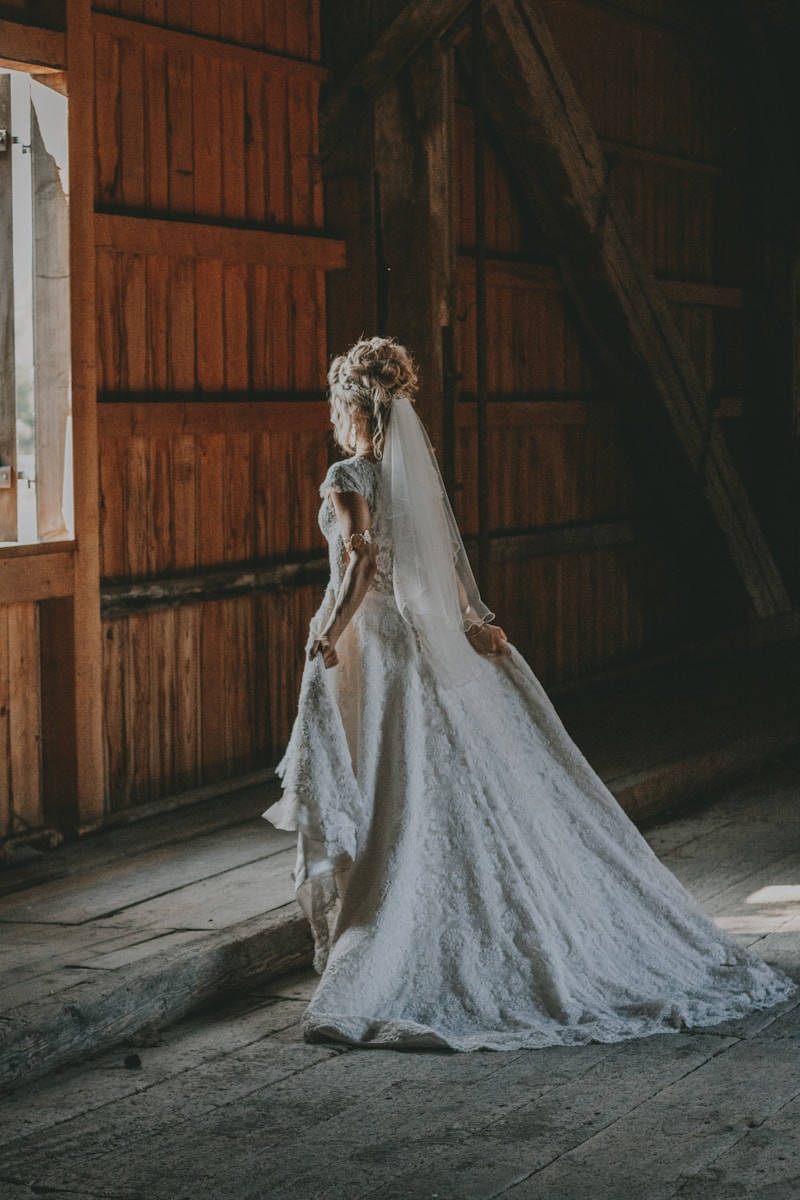Making the Most of Your Wedding Dress Budget: Tips for Budget-Conscious Brides
Understanding Your Wedding Dress Budget
Planning a wedding can be both exciting and overwhelming, especially when it comes to budgeting for significant elements like the wedding dress. The average cost of a wedding dress can vary remarkably depending on the designer, style, and location, but with strategic planning, you can make the most of your wedding dress budget.
The Importance of Setting a Realistic Budget
Before diving into the wide array of options available, it's crucial to establish a budget that reflects not only the cost of the dress but also additional expenses such as alterations, accessories, and cleaning post-wedding. Setting a realistic budget helps in narrowing down choices and prevents overspending. Here's a simple breakdown:
| Expense Category | Estimated Cost |
| Wedding Dress | $1,000 - $3,000 |
| Alterations | $50 - $300 |
| Accessories (veil, shoes) | $100 - $500 |
| Cleaning & Preservation | $100 - $300 |
Researching Wedding Dress Styles
One of the key aspects of making the most of your wedding dress budget is to research various styles that fit within your budget. Utilize platforms like Pinterest and Instagram to gather inspiration while being mindful of your price range. Popular styles include:
- A-Line Dresses
- Ball Gowns
- Sheath Dresses
- Mermaid Styles
By being clear about your preferences and wedding theme, you can focus your search on dresses that fulfill both your style and budget needs.
Choosing the Right Time to Shop
Your shopping timeline plays a significant role in budget management. Off-peak wedding seasons often come with discounts and perks. Consider shopping for a wedding dress during the off-season months, which can be as advantageous as shopping during sales events or sample sales. Try to avoid last-minute purchases; these can lead to hasty decisions and inflated costs.
Exploring Various Shopping Avenues
There are many avenues to explore when it comes to purchasing your wedding dress. Each option offers unique benefits and pricing structures:
- Bridal Boutiques: Specialty shops provide the full bridal experience but often come at a higher price.
- Online Retailers: Many online platforms offer a broad selection at discounted prices, but be cautious when it comes to fitting and quality.
- Second-Hand Dresses: Websites like PreownedWeddingDresses or local Facebook marketplaces can provide beautiful options at greatly reduced prices.
- Rentals: Consider wedding dress rental services for a fraction of the purchasing cost.
The Power of Negotiation
Don't hesitate to negotiate the price with designers or boutiques. If you have a specific budget in mind, communicate that upfront. Many stores are willing to work with customers, offering discounts on accessories or collection items if they cannot lower the dress price itself.
Accessorizing Wisely
Accessories can elevate your wedding dress but can also strain your budget if not managed wisely. When choosing accessories:
- Tip 1: Opt for classic pieces that can be worn again.
- Tip 2: Consider DIY options for veils or belts.
- Tip 3: Rent instead of buying to save money.
Don’t Underestimate the Impact of Alterations
After finding your perfect wedding dress, the next step is to consider alterations. A dress that doesn't fit well can lead to additional costs. Finding a seamstress early in your search can provide a clearer understanding of potential alteration costs and adjustments needed to make the dress fit like a glove.
Cleaning and Preservation
Post-wedding, it's essential to think about cleaning and preserving your dress. Many bridal shops can suggest services that specialize in this. Ensure to factor in these costs when budgeting, as preserving the dress can help keep it in pristine condition for years to come, whether for resale or family heirloom purposes.

Final Thoughts on Making the Most of Your Wedding Dress Budget
In summary, making the most of your wedding dress budget requires early planning, clear expectations, and informed choices. Whether you decide to shop online, visit boutiques, or explore second-hand options, remember to stay true to your vision while adhering to your budget. Take your time researching various styles, shop smart, and be prepared to negotiate. Budgeting effectively opens doors to options that align with your style, ensuring that you walk down the aisle in a dress you adore without breaking the bank.
With these tips at your disposal, you can confidently embark on your Wedding Dress Shopping journey, allowing your dream gown to become a reality within your budget constraints.
Additional Considerations
As you navigate the world of Wedding dresses, remember to stay flexible and open-minded. Sometimes, being too fixated on a specific style can limit your options. Research thoroughly and keep an eye out for other keywords like “affordable wedding dress,” “wedding dress sales,” or “bridal gown trends,” which might inspire your search and provide additional avenues to save. Happy shopping!